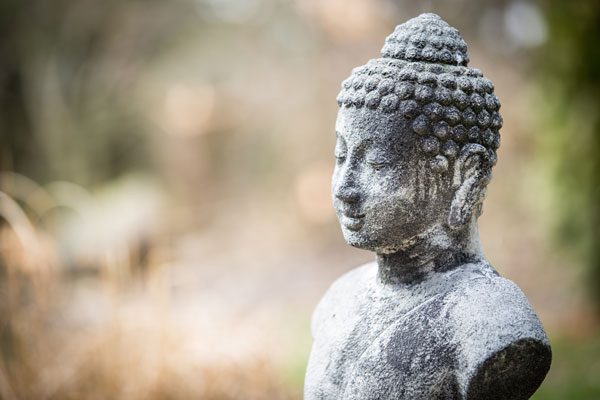The cause of human suffering, as explained in Buddhist terms, is greed, anger, and ignorance. These negative traits and fundamental evils are called the “Three Poisons” because they are dangerous toxins in our lives.
Not only are they the source of our unquenchable thirst for possessions and the root cause of all of our harmful delusions, but they are also painful pollutants that bring sickness, both physical and mental.
Greed’s companions are desire and lust, and these passions and attachments cause us to want to get hold of things and to have more and more of them.
Anger’s friends are hatred, animosity, and aversion, which cause us to reject what displeases us or infringes upon our ego. Ignorance, which is “not knowing,” especially not knowing our true nature, paves the way for delusion or our believing something that is false.
These poisons fill our lives with suffering, frustration, unhappiness, and unsatisfactoriness. They cause us to make unskillful decisions, which can affect our future and cause us to be self-serving and dishonest or unethical and immoral.
They are the roots of not only our own pain and misery but those of our loved ones and of societies.
Fortunately, there is a way to eradicate this trio of contaminants. The practice of loving-kindness and compassion is the medicine, and enlightenment is the antidote.
Many of us are apt to be dominated by one of the poisons. Even when one dominates, the other two are always lying dormant, like dry seeds that can sprout whenever nourished.
If one is dominated by anger, one tends to have unrealistic expectations, to be depressed or obsessed over political views, real or imagined enemies, or any of life’s negative delusions.
If the dominating poison is greed, then it can be manifested by stinginess, hardheartedness, hoarding, or self-indulgence. One tends to be attached to one’s own ideas or to material things, thinking that more is better and that getting things will bring happiness.
When we are ignorant, we do not realize our potential for experiencing happiness, which is our true nature, our Buddha nature. Ignorance causes insecurity and a feeling of weakness, powerlessness, and apathy.
Buddhist teachings tell us that because of our connectedness, these personal poisons are reflected in our society.
Greed, for example, is reflected in the destruction of the environment. Such reflections, however, are impermanent, changeable, and transitory. They can be transformed for good.
Anger, for instance, can cause us to rally against intolerance, injustice, and immorality.
While greed reflects insecurity and anger reveals vanity, ignorance articulates naïveté concerning knowledge and understanding of life’s realities.
One reality is that we don’t all think alike.
Because of culture, religion, nationality, and numerous other separators, including our individual experiences, one’s thought process isn’t always the same as another’s process and conclusion.
These factors hide our connectedness, interdependence, and oneness from us.
Flocks of birds and schools of fish often reflect this oneness with synchronized flights and swims and instantaneous turns. Their oneness is apparent, as it also is when exhibited by tribes, indigenous groups, and inhabitants in the more isolated parts of our planet.
But for most of us, this display of oneness is lacking.
Aware of their many similarities, multiple races and ethnicities attempt to live together harmoniously but sometimes seem severely handicapped by their impending differences. Still, our oneness is factual.
If we are aware of the “Three Poisons,” their causes, and their cures, we can bring about a wonderful metamorphosis.
Through the practice of loving-kindness and compassion, these bitter poisons can be changed into sweet nectars, from which will evolve true happiness, replacing the fakes and counterfeits we have become used to.
When we realize our interdependence, our connectedness, and oneness, we rid ourselves of the poisons that keep making us sick.

